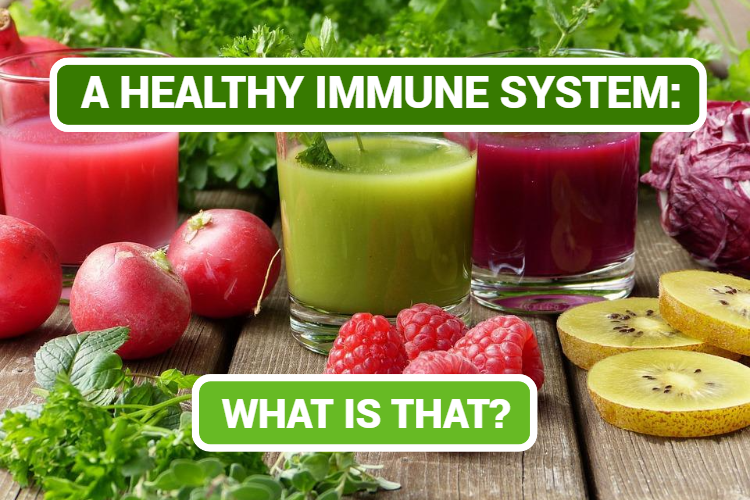
A HEALTHY IMMUNE SYSTEM: WHAT IS THAT?
It has become so important to do all that we can to make ourselves as fit and healthy as possible: strengthen and boost our body’s natural defenses against illness and disease, by building up a strong, and healthy immune system.
The human immune system functions as your body’s first and last line of defense against illness and disease. Basically, it is your body’s self-defense mechanism that is used to help ward off invaders which we cannot see with the naked eye, I.E germs, and bacteria.
Have you ever noticed how, every winter during cold and flu season, some people seem to catch multiple colds and illnesses, yet others seemingly never get sick, or if they do it’s very rare, and they’re normally back on their feet and fighting fit within a few days?
That’s because different people have different immune systems, some stronger and healthier than others. That has been more apparent with Covid. It is not said clearly on mainstream media but even vaccinated people still have to pay attention to their health.
WHAT IS A HEALTHY IMMUNE SYSTEM?
Well, the immune system consists of a complex network of cells, organs, and tissues that all work together in synergy, to defend your body from germs, microbes, bacteria, and other nasties that can attack us from within, yet are too small to be seen via the naked eye.
A healthy immune system functions by initially providing a protective barrier that helps to prevent antigens from entering your body. If one can make its way in, your immune system will then produce antibodies in the form of proteins and chemicals, and white blood cells, which are then sent to attack and destroy these foreign substances before they have a chance to do any damage.
The white blood cells and antibodies first attempt to locate and destroy the antigen and eradicate it before it has time to attack your cells and reproduce. If this first mission fails, your immune system will then step up a gear and the white blood cells and antibodies will become more aggressive and will attempt to destroy the invaders as they reproduce and multiply.
A healthy immune system is a miraculous thing, as it has the ability to remember internal functions. A healthy immune system can recognize millions upon millions of antigens, where it will remember if it has encountered a particular antigen before and will remember what it needs to produce and do to destroy it again.
A healthy immune system can keep a variety of illnesses and diseases at bay, including various Coronavirus strains. Therefore, it’s so important to keep your immune system strong and healthy during a pandemic, though in reality, a healthy immune system is beneficial at all times.
HOW TO GAIN A HEALTHY IMMUNE SYSTEM?
It is known that vitamins and supplements can boost a healthy immune system, but what else can we do to ensure that our immune system is at full capacity? Here are a few useful tips that help me during this challenging period:
CHANGE YOUR EATING HABITS
As far as healthy immunity goes, diet plays a very important role in determining how strong and healthy an immune system is. If you’re eating a diet that consists primarily of junk food, you’re going to look and feel like, well, junk.
Junk food contains very little nutrition, it’s loaded full of unhealthy fats, plus it contains salt, sugar, and plenty of artificial chemicals and ingredients which do the body no good at all. To be clear with junk food we refer to the traditional McDonalds, Burger King, Pizza Hut, Domino’s Pizza, Dunking Donutsbut also the French fries’ frozen packages, Frozen pizza’s, pasta’s, and frozen vegetables.
Frozen food has additives that help maintain the food fresh but are not necessarily “healthy”. You may think we exaggerate but we know plenty of people who survive only on junk food by choice.
On the flip side, fresh and healthy produce packed full of nutrients, is going to help strengthen the immune system and make it stronger and healthier. In some countries, they are even cheaper than packed frozen food. Cut away from junk food and instead eat plenty of fruit, vegetables, complex carbs, lean proteins, and healthy fats.

INVEST IN SUPPLEMENTS
As well as adjusting your eating habits to consume plenty of fresh and healthy produce, you should also consider purchasing health supplements such as vitamins and minerals. Every vitamin and mineral in existence plays a role in promoting immunity, so providing that you consume your minimum recommended daily intake, you should benefit hugely.
Vitamin C with added zinc is important, as is vitamin B6, along with omega-3s, and for all-around health, a good quality multivitamin supplement. If we were to list each one, we’d be here all day but generally speaking, if it is a vitamin, mineral, or health-boosting supplement, it will almost certainly boost your immune system.
EXERCISE
Exercise is not just beneficial from a weight management perspective, it’s also very beneficial for people looking to strengthen their immune systems. Exercise helps to boost circulation, which in turn enables more oxygen and nutrients to be transported around the body and delivered to the cells.
This in turn makes the cells, including white blood cells that make up part of the immune system, stronger and healthier, resulting in a stronger and healthier immune system. Better circulation also means that antibodies can be carried around the body quicker, and in larger concentrations, meaning that they can reach invading pathogens faster and get to work quicker.

DRINK PLENTY OF WATER
Water plays a crucial role in countless physiological processes in the body, including those involved in the functioning of the immune system. You see, the circulatory system is equipped with lymph fluid, which is a fluid that transports important infection-battling immune cells around the body. Lymph is primarily made up of water, so dehydration could potentially weaken your immune system.

GET ENOUGH SLEEP AND AVOID STRESS
One reason why a lot of people find themselves getting ill if they’re stressed, rundown, and lacking sleep, is because a lack of sleep can weaken the immune system. Whilst you sleep, your body is carrying out a variety of different processes, including the synthesis of molecules that help to fight and prevent infection.
Stress is also something to avoid whenever possible, as stress promotes the production and secretion of stress hormones such as cortisol, which have been found to suppress immunity. I know this is something that its easier said than done in this climate but there are ways to reduce the stress. What works in my circles are breathing exercises, meditation, and exercise
For the ladies the preference is yoga, walking, or running. For the gentlemen, that have a gym at home weight lifting, and machine leg and arms exercises are helpful but prefer the ever-reliable punching bag. It’s different for every person. Putting it simply, whenever possible, try to relax and try to get plenty of sleep each night – ideally between 7 and 9 hours.
ABOUT VITAMINS AND SUPPLEMENTS
First and foremost, in terms of general health, there really are no substitutes for a healthy diet and exercise. With that said, nutritional supplements and vitamins, in general, can work wonders when it comes to strengthening the immune system, as it thrives upon this natural goodness. A few of the main vitamins and supplements for a healthy immune system include:
VITAMIN C
You cannot talk about vitamins and the immune system, without mentioning vitamin C. Vitamin C, or Ascorbic acid, as it is also known, plays a key role in the functioning of the immune system, and a deficiency of this vitamin can leave you with a weakened immune system and susceptible to a number of illnesses and diseases.
Vitamin C helps to boost immunity and is considered essential as the body doesn’t produce or store it, so it must come from dietary sources instead. Vitamin C is found in virtually all fruits and vegetables, plus it’s also available in supplement form. One 1000mg vitamin C supplement per day will be sufficient in terms of dosages.
VITAMIN E
Vitamin E, like vitamin C, is renowned for its antioxidant properties that help to keep the cells strong, healthy, and functional. Vitamin E is a fat-soluble vitamin that can only be absorbed by the body in the presence of fats.
Vitamin E plays a key role in numerous biomechanical processes within the body and is essential in terms of how the immune system functions on a daily basis. Each day, it is recommended that men consume 4mg per day and women 3mg.
VITAMIN D
Vitamin D is a fat-soluble vitamin that functions like a steroid hormone in the body. There are two forms of vitamin D in the diet: Vitamin D2 (ergocalciferol) and Vitamin D3 (cholecalciferol). D3 is the more powerful and raises blood levels of vitamin D almost twice as much as D2. The main sources of vitamin D are sunshine, some mushrooms, fatty fish, egg yolks, fish liver oils, fortified foods, and supplements. Many know about vitamin D for its contribution to bone health.
Vitamin D also helps promote what is essentially an immune system housekeeping process called autophagy, where the body removes damaged or failing cells and recycles them to create newer, healthier cells. This process can help eliminate invading organisms from the body. Every cell in your body has a receptor for vitamin D. This vitamin is involved in many processes, including bone health, immune system function, and protection against cancer.
Recommendations from the US Institute of Medicine suggest that an average daily intake of 400–800 IU, or 10–20 micrograms, is adequate for 97.5% of individuals. Large amounts of vitamin D can also be made in your skin when it is exposed to UV rays from sunlight. To get a normal level naturally, people with lighter skin can go outside in the middle of the day for about 15 minutes without sunscreen on, since sunscreen blocks vitamin D absorption. For those with darker skin, it may take about twice as long to get normal levels from the sun.
Because unprotected sun exposure could increase the risk for skin cancer, taking supplements in moderation is an alternative. While vitamin D has no serious risks when taken at the right levels, taking too much could increase the risk for kidney damage, kidney stones, or other complications like tiredness, muscle pain, abdominal discomfort, constipation, or nausea from too much calcium build-up in the blood. The recommended dietary intake for vitamin D according to the U.S. National Institutes of Health is as follows:
-
- 400 IU (10 mcg): infants, 0–12 months
- 600 IU (15 mcg): children and adults, 1–70 years old
- 800 IU (20 mcg): older adults and pregnant or breastfeeding women
VITAMIN B6
Vitamin B complex affects many parts of the body, assisting with critical functions such as eyesight, red blood cell growth, proper digestion, energy levels, heart health, and brain and nerve function. B vitamins can be found in a variety of foods including red meat, beans, milk, cheese, broccoli, spinach, avocados, and brown rice. Vitamin B complex is made up of eight different essential types, including B-2 (riboflavin), B-6, and B-12.
Vitamin B-6 plays a key role in over 200 physiological processes within the human body and is essential when it comes to supporting the biomechanical reactions which take place within the immune system. Put simply, it is essential if you want to enjoy a healthy and functional immune system. Experts recommend that adults consume between 1.3mg and 1.7mg of vitamin B6 per day.
ZINC
Zinc is an important trace mineral that plays a key role in numerous internal processes, including those relating to the immune system, as well as promoting the production of hormones. Zinc works particularly well at boosting immunity if paired with vitamin C, which is why a lot of vitamin C supplements are also enriched with additional zinc.
Found in fortified breakfast cereals, meat, and shellfish, zinc is a mineral you’ll need plenty of if you wish to enjoy optimal immune system function. Per day, experts recommend 11mg of zinc per day for adult males, and 8mg of zinc per day for adult women.

WHEN IS THE BEST TIME TO TAKE VITAMIN SUPPLEMENTS?
To get the most from vitamin supplements, it’s important that you consume them at the right times and in the right way. Fat-soluble vitamins, capable of being dissolved or liquefied with fat, such as vitamins A, D, and E for example, should be consumed with whole foods and a fat source to assist with absorption.
Water-soluble vitamins, however, I.E vitamin C, are best consumed with water on an empty stomach, as food can slow absorption rates. For convenience purposes, water-soluble vitamins are best consumed in the morning before breakfast.
FINAL THOUGHTS
It has not been said much in the mainstream but improving our health is a necessary goal. Even though many people were encouraged by governments to live a nonhealthy life during the rights of the pandemic. I will never forget how fast food restaurants and liquor stores got to be open during the lockdowns. Gyms and small farmers’ markets were closed. Only supermarkets and a few mini markets got to be open. Mistakes were made but they will never be acknowledged.
The need for a strong and healthy immune system has never been more important. The good news is that, whilst genetics do play a role in determining the strength of a person’s immune system, it is still very possible to strengthen and boost your immune system by simply making a series of healthy lifestyle changes and watching what you eat and drink.
Do your research. Read the labels on the products you buy. Please take care and be prepared.
Sources
Dietary Supplement Fact sheet
Short and long-term variations in serum calciotropic hormones after a single very large dose of ergocalciferol (vitamin D2) or cholecalciferol (vitamin D3) in the elderly
Evidence that vitamin D3 increases serum 25-hydroxyvitamin D more efficiently than does vitamin D2
The 2011 report on dietary reference intakes for calcium and vitamin D from the Institute of Medicine: what clinicians need to know
Human serum 25-hydroxycholecalciferol response to extended oral dosing with cholecalciferol
The above notes are my opinion based on life experiences, sources referenced in the text with links, and the sources list. I’m not sure if the links will be working in the future but just in case you can always check them if they are broken using tools such as the Wayback Machine on Internet Archive, a non-profit library of millions of free books, movies, software, music, websites, and more. The date of the article or a week before should be timewise a good place to start.



